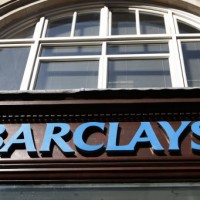
It was a strong message and, given the FSA’s latest revelations about UK banks’ sales incentives, which lead to misselling, well-timed.
Barclays said it plans to train key staff in these values later this year and measure staff on those values in future performance assessments. Is this a commendable bid to overturn a toxic culture? And will it work, or are ethics codes just another PR patch on what has oft been coined a ‘broken banking culture?’
For this week’s Market Watch, our commentators are:
Barclays chief executive Antony Jenkins, who acknowledged the bank had become disconnected from customers in a frank letter to staff
Corporate communications consultant Stuart Bruce, who says simply introducing an ethics code is unlikely to change bank culture
Social Market Foundation senior economist Nida Broughton, who says simpler products, rather than ethics codes, is the key to restoring trust in Barclays
Antony Jenkins, chief executive, Barclays
 Excerpt from letter to staff
Excerpt from letter to staff
Over a period of almost 20 years, banking became too aggressive, too focused on the short-term, too disconnected from the needs of our customers and clients, and wider society. We were not immune at Barclays from these mistakes.
Over this period much great work was done right across our bank. We helped large numbers of customers and clients buy homes, grow businesses and save for their futures. But there was also a tendency at times, manifest in all parts of the bank, to pursue short-term profits at the expense of the values and reputation of the organisation. In doing so we damaged our ability to make long-term sustainable returns.
Let me be quite clear. The notion that there must always be a choice between profits and a values-driven business is false. Barclays will only be a valuable business if it is a values-driven business. Unless we operate to the highest standards and our stakeholders trust us to behave with integrity, no business – and certainly no financial institution – can continue to be successful. Nor do they deserve to be. There is no choice between integrity and profit in this business, and to pose them as opposites fundamentally misunderstands the problems the banking sector faces. This is the difference between generating short term profits and long term shareholder value.
Having a firm commitment throughout the business to strong values is not something I want to do for public relations or political benefit. It is not window dressing. It is simply how I will run Barclays and make it a more valuable and sustainable institution.
Stuart Bruce, principal, Stuart Bruce Associates
 Simply introducing an ethics code and saying that employees who “don’t feel they can buy into it” can leave is unlikely on its own to change a corporate culture. Various studies have shown that usually people want to ‘do the right thing’ and behave ethically – however understanding what is the ‘right thing’ is influenced by culture. People copy off the behaviour of people around them and even when there are codes, manuals and procedures are still likely to take the easier route of emulating a colleague.
Simply introducing an ethics code and saying that employees who “don’t feel they can buy into it” can leave is unlikely on its own to change a corporate culture. Various studies have shown that usually people want to ‘do the right thing’ and behave ethically – however understanding what is the ‘right thing’ is influenced by culture. People copy off the behaviour of people around them and even when there are codes, manuals and procedures are still likely to take the easier route of emulating a colleague.
If Barclays are doing this to win praise then it is a risky tactic. Firstly, will customers, the media and other stakeholders actually believe it? Secondly, if you take the take the ethical high ground and haven’t taken sufficient practical steps to improve behaviour then future malpractice will be judged even more critically.
Employees should be the first line in changing attitudes towards banks and improving trust. They are one of the most trusted information sources about a brand. Barclays needs to ensure it knows how well its employees understand its corporate values. Internal social networks can be used to enable employees to share best practice, positive leadership role models and public praise for behaviour that demonstrates corporate values.
Nida Broughton, senior economist, Social Market Foundation
 Amidst ongoing Libor and PPI scandals, it is no wonder that banks are trying to re-build their reputations. Last week Barclays told its staff to buy into its ethics code, or leave. Re-aligning staff incentives so that they focus less on the singular pursuit of new sales can no doubt play a role in re-building trust with consumers.
Amidst ongoing Libor and PPI scandals, it is no wonder that banks are trying to re-build their reputations. Last week Barclays told its staff to buy into its ethics code, or leave. Re-aligning staff incentives so that they focus less on the singular pursuit of new sales can no doubt play a role in re-building trust with consumers.
But ethics codes and the like aren’t enough to put consumers in the driving seat – which is what is really needed for the retail financial services market to work properly. As we found in our research, in consumer finance competition tends to drive greater complexity. Instead of competing on value for money, it too often makes more sense for providers to bamboozle customers increasing additional and hidden charges, and making products hard to compare.
We recommended the development of a set of trusted financial products that have transparent and standardised charging structures and small print. The Treasury’s Sergeant Review has since come up with similar recommendations for Simple Products. Their effectiveness will crucially depend on how they are implemented. Simplicity is a start: but being able to easily compare different products will be the factor that can really drive trust and competition in this market.
















